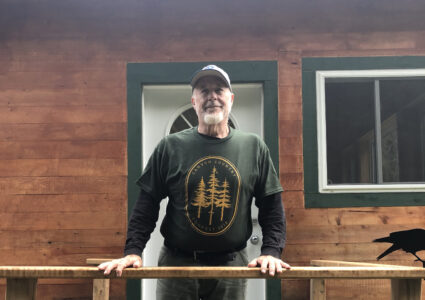Focusing on health and goals in the last 100 days of the year

photo by: LMH Health
LMH Health, 325 Maine St., is pictured in May 2021.
I hate to break the news, but it’s true. Sept. 22 marks the date when only 100 days remain in 2024. Did you do all the things you set out to do at the beginning of the year? Did you learn to speak Spanish? What about training for that marathon?
You may find yourself asking the age-old question, “Where did the time go?” If you do, know that you aren’t alone. A University of Scranton study found that only 8% of people who set New Year’s goals actually achieve them. If yours took a backseat, think about using the last 100 days to refocus.
Sandra Dixon, director of behavioral health integration at LMH Health, said it’s important not to get caught up in the resolutions or goals that you made nine months ago.
“Life happens. Maybe there have been changes in your personal life or your work life, and those don’t align with where you thought you’d be,” she said. “Give yourself some grace. Celebrate the progress you have made, because goals aren’t necessarily about the finish line.”
How you set your goals can impact your ability to achieve them. You’re less likely to achieve goals that aren’t SMART — specific, measureable, achievable, relevant and time-bound.
“If you set a goal and don’t know how to quantify it, that’s not a good goal for yourself. You want it to be measureable and you want it to be achievable,” Dixon said. “Losing 80 pounds may not be achievable for me but if I lose a few pounds, I’d feel better. Maybe my goal is to sleep better at night and losing a few pounds is a way to get there. Goals are the combination of the small steps we take to get there.”
Setting those goals
So what should you be focusing on for the next 100 days?
If physical health is at the top of your list, that doesn’t necessarily mean you should start training for the 5K that’s just around the corner. You can start by setting tangible goals to get all the information you can about your physical health. These can include:
• Annual checkup with your primary care provider
• Recommended health screenings such as a colonoscopy, mammogram or prostate exam
• Vaccinations for COVID-19, flu, pneumonia or shingles
“You can have all this information and use that to set measureable goals for yourself. If your doctor says that you really need to get 30 minutes of exercise at least five days a week, make that one of your goals,” Dixon said.
What about mental health? Let’s start with defining what it means to work on your mental health.
“If you have a quantifiable diagnosis (a mental health condition as determined by a licensed provider), would a change in medication from your provider be helpful? Maybe short-term therapy is a start,” Dixon said. “If you don’t have balance in your life, maybe spending time with a journal is an answer. If you’re stressed and don’t know where to start, sit and have a conversation with a therapist or a friend. Asking questions is a great place to start.”
She said that information can help you define what goals to put in place over the next 100 days. That may mean going to a website like BetterHelp to find a therapist and spend 10 weeks working with them, or it could be turning to community and social supports.
Those supports are also integrated into spiritual health, which is another focus for many people. Stephanie Petersen, spiritual care manager at LMH Health, said that getting in touch with your spiritual side and finding inner peace isn’t all about religion. She said spiritual health can be broken into four parts:
• Personal: What’s going on inside you
• Communal: Community and relationships with others
• Environmental: Earth, nature and a sense of wonder
• Transcendental: God, life force, something bigger than the world, mysteries of the universe
“It’s important to be patient with yourself, be flexible and let go of any preconceived notions about what it means to be in touch with your spiritual side,” Petersen explained. “As a chaplain, my focus is on your sense of meaning and purpose, not what religion you may practice.”
Focusing on spiritual health looks different for everyone. Petersen shared that for some, it may include activities such as meditation, getting outside, experiencing nature, or practicing gratitude. Others may find meaning in learning, creating art or music, volunteering or connecting with the community.
“You don’t have to go down a list and check off all these boxes as a path to spiritual wellness,” she said. “It’s important to have a spiritual foundation and practices that work for you. They can help you cope when things are difficult and to thrive in the everyday.”
Whatever aspect of life you decide to focus on over the next 100 days, both Dixon and Petersen agree that it’s important to be flexible and give yourself some grace.
“Life can change in a minute, and it’s important to keep that in mind,” Dixon said. “Be flexible. Don’t beat yourself up if your goals aren’t quite in reach. If you don’t reach them in the next 100 days, keep working at them in the 100 days after that in the next year. It doesn’t have to be the end.”
— Autumn Bishop is the marketing manager and content strategist at LMH Health, which is a sponsor of the Lawrence Journal-World health section.





